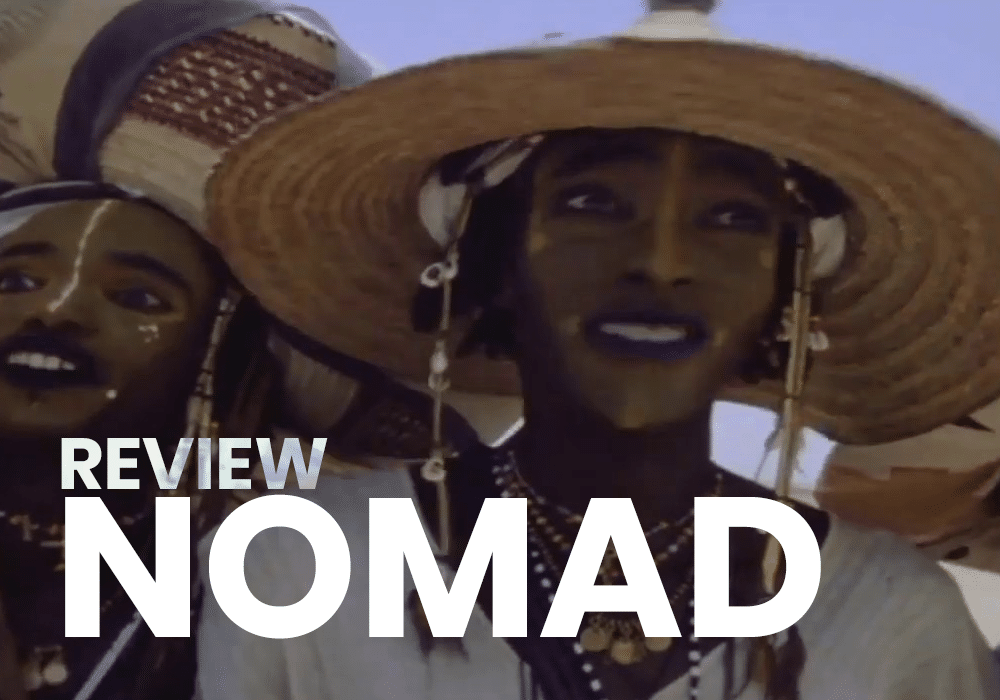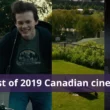20 years after travel writer Bruce Chatwin’s death, Herzog’s new film Nomad: In the Footsteps of Bruce Chatwin serves as both a celebration of Chatwin’s curiosity and a retrospective of Herzog’s own explorations.

English writer Bruce Chatwin helped revitalize the travel writing genre in the 1970s and 1980s, with popular and acclaimed books including In Patagonia (1977) and The Songlines (1987). Chatwin died in 1989 from AIDS-related illness, at the age of 49. Herzog and Chatwin met in the early 1980s and developed a friendship based on, what Herzog describes, their continual “search for strangeness”. Herzog’s most recent films, like Meeting Gorbachev (2018), have often abandoned this search, and as a result, have failed to reach the heights of the uncanny experiences of his best documentaries like Grizzly Man (2005) or Encounters at the End of the World (2007).
In a discussion with Chatwin’s biographer Nicholas Shakespeare, Herzog and Shakespeare speak about how “the pedantic reviewers who blamed him [Chatwin] for making things up… were wrong. Bruce would take facts, but he would modify them in such a way they would resemble more truth than reality.” Herzog has said “documentary film must divorce itself from journalism.” While the film chronologically follows Chatwin’s footprint, Herzog offers biographical details about Chatwin only in passing, and instead, attempts to share with us an uncanny truth about living and embracing strangeness.The best parts of Nomad take us to the sites of Chatwin’s books: remote beaches in Patagonia, the Black Hills of Wales, abandoned Hollywood science fiction sets in the Australian Outback, all captured in beautiful deep focus shots which allow us to take in the landscapes’ beauty. The wondrous nature landscape set a strong contrast to Herzog’s emphasis on the bizarre human activities that occur there, like elderly tourists flocking to a replica giant sloth or a man crossing his dowsing sticks as “proof” of mystical ley lines.
Nomad presents an ethical dilemma around the idea of the nomad. Chatwin preferred to think of himself as a nomadic storyteller rather than a travel writer. A nomad supposedly does not judge what they experience against what they already know but, instead, is on a constant search for new experiences. When these experiences are related to landscapes transformed by modernity, it is easy to share in the wonder.
But when Chatwin’s new experiences are the cultural beliefs of colonized peoples, his insistence on taking on the mantle of the nomad becomes exploitive because he is drinking in Indigenous norms as strangeness. Chatwin’s book The Songlines, which refers to Australian Indigenous understandings of the landscape, in particular, has been criticized for misrepresenting Indigenous knowledge to reflect Chatwin’s own ideas of romanticized nomads. He approached the use of traditional songs that describe landscapes as a novel navigational tool, rather than representing a more complex, deep connection to land in Indigenous cultures. Refreshingly for Herzog, where several of his most famous films like Fitzcarraldo (1982) have relegated Indigenous characters to the background, Indigenous characters do have a voice in the film, which allows a counterpoint to Chatwin’s ideas. Indigenous Scholar Shaun Angeles Penange and Herzog discuss how the academic book which initially inspired Chatwin to research “songlines” contains knowledge that should only be available to people with a deeper understanding of the Aborginal worldview. By interviewing the scholars and elders, Herzog demonstrates how Chatwin further contributed to a colonial history of sharing this knowledge without context.
While Herzog argues documentary should not be limited to journalism, the film shares with journalism the insistence on presenting both sides of an argument without delivering an explicit answer. While obviously highly admiring Chatwin’s life, Herzog’s retracing of Chatwin’s steps is not just recreating Chatwin’s experiences, but also considering how to pay attention to perspectives Chatwin missed on his journeys by introducing the viewer to different voices. The result of engaging with Chatwin’s ideas while allowing the viewer to re-evaluate them is one of Herzog’s more thought-provoking films in years.

